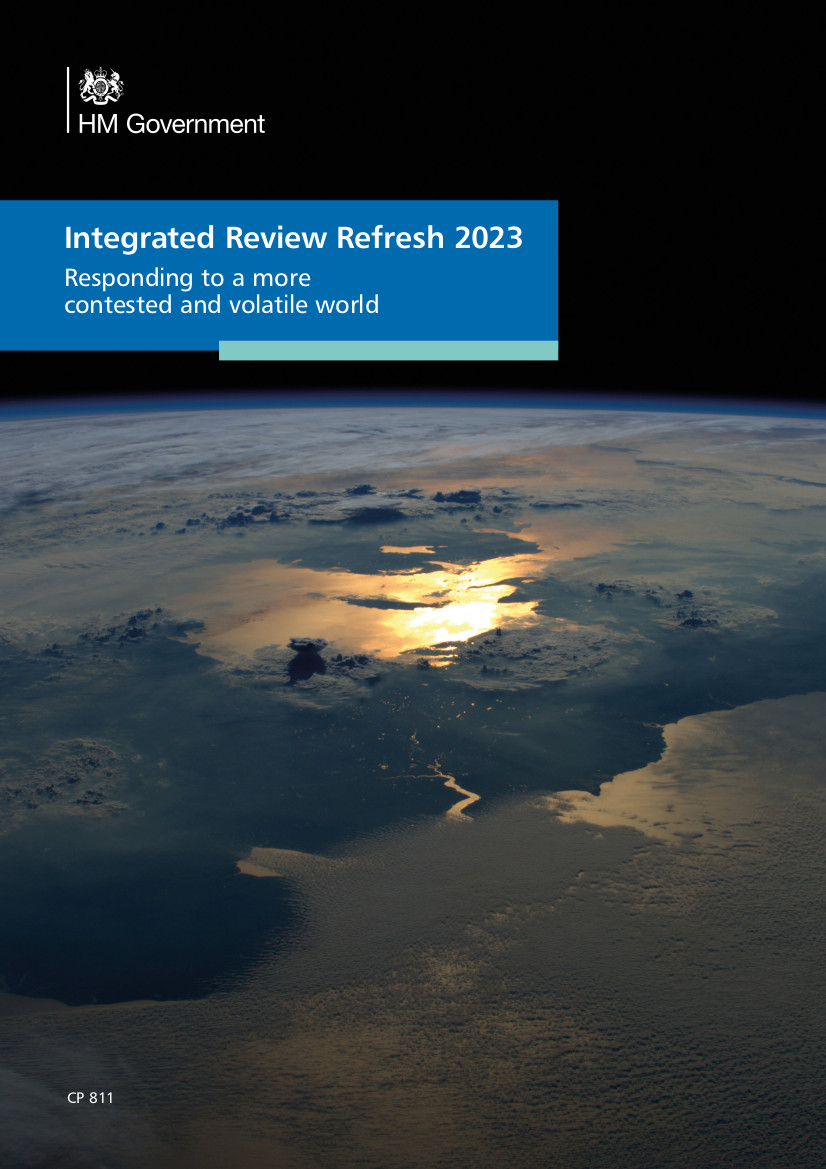The Government’s Integrated Review Refresh included an announced £3bn in additional funding for its nuclear programme, but did not include any significant changes to UK nuclear policy. The one notable change is a new candour around the role that nuclear power plays in supporting the nuclear weapons programme.
The Integrated Review Refresh (IRR23), released on 13th March, is an update to the 2021 Integrated Review (IR21). That review was intended to set long-term strategic priorities for the Ministry of Defence (MOD) that were realisable within planned budgets. Due to the invasion of Ukraine by Russia and the changing fiscal approach of the two governments since March 2021, the government decided to supplement the IR21 with this ‘Refresh’ report.
The IRR23 was first suggested under the Truss government. At the time it was expected that it would incorporate a planned substantial increase in military spending. Since the financial turmoil following the September 2022 mini-budget, and the subsequent collapse of the Truss government, the planned increases to the MOD budget have become much more modest. The detail of how the MOD intends to implement the strategic priorities of the IRR23 within this more constrained budget have been delayed until the release of a Defence Command Paper, scheduled for June 2023. A Defence Nuclear Strategy is also planned for later in the year.
The IRR23 is intended to be read alongside the IR21, and contains only a brief section on the nuclear programme, less than two pages long. This repeats key themes of the IR21 and discusses the AUKUS programme, but does not contain any changes to policy. The IR21 announced an increase in the UK’s nuclear weapons stockpile cap, reversal of transparency around the UK’s numbers of deployed nuclear weapons and an enlarged caveat to the UK’s negative security assurances. The IRR23 says that the negative security assurance “remains unchanged”, but does not mention the UK stockpile or transparency. Details about the AUKUS programme were announced separately from the IRR23 on the same day by the leaders of the US, UK and Australia.
The £3bn of funding announced in the IRR23 is said to be “supporting areas such as the construction of industrial infrastructure at Barrow, Derby and at the Atomic Weapons Establishment”, resulting in improvements to skills programmes, submarine support, manufacturing and maintenance. Elsewhere the document highlights the March 2022 announcement of £2bn for the Dreadnought programme, which appears to have been the 2022/23 budget for the programme, rather than new funding. The IRR23 also repeats the government’s stated ‘aspiration’ for MOD spending to increase to 2.5% of GDP, but does not commit to any timetable beyond the ‘longer-term’ or a process for achieving this increase.
The one significant change in the approach of the IRR23 is a new frankness about the role that the nuclear power sector plays in supporting the MOD’s nuclear enterprise. While this role was widely understood and often lionised by companies in the civil nuclear sector, it has previously only been obliquely referenced by the MOD, if at all. The IRR23 commits the government to “proactively look for opportunities to align delivery” of civil and military nuclear and seek “synergies where appropriate”.
Nearly a third of the IRR23’s brief section on the nuclear programme then focusses on the government’s support for nuclear power. This theme is intended to be developed further in the Defence Nuclear Strategy which will apparently address the question of skills as well as “make clear the vitally important role” of the nuclear industry in supporting both nuclear power and the defence nuclear enterprise.
